Address
304 North Cardinal
St. Dorchester Center, MA 02124
Work Hours
Monday to Friday: 7AM - 7PM
Weekend: 10AM - 5PM
Address
304 North Cardinal
St. Dorchester Center, MA 02124
Work Hours
Monday to Friday: 7AM - 7PM
Weekend: 10AM - 5PM
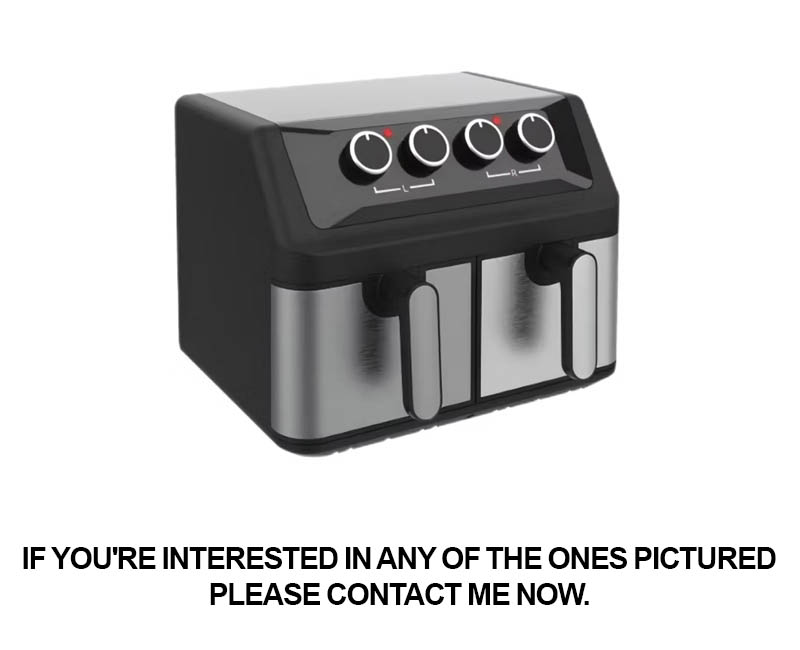
In the ever-evolving landscape of the kitchen appliances industry, there’s a surge of innovation and a relentless pursuit of excellence. As manufacturers strive to capture a share of the lucrative European market, understanding the intricacies of certification processes is paramount. This article delves into the significance of UKCA certification for kitchen appliances, exploring the niche’s growth potential, innovative ideas shaping the future, and the streamlined approach that can make the transition to the EU market seamless.
Unlocking EU Market Access: The Importance of Turnkey UKCA Certification for Kitchen Appliances
In today’s globalized world, tapping into the European Union (EU) market is a significant goal for many kitchen appliance manufacturers. The EU is known for its stringent regulations and high standards, making it a challenging yet lucrative market to enter. One key to navigating this landscape successfully is obtaining the UKCA (United Kingdom Conformity Assessment) certification, which is now essential for accessing the EU market. This article delves into the importance of turnkey UKCA certification for kitchen appliances and why it’s a game-changer for businesses looking to expand into the EU.
The EU Market’s Charm and Challenges
The EU market is not just a massive consumer base; it’s also a region with a strong emphasis on safety, quality, and sustainability. For kitchen appliance manufacturers, this means adhering to a complex web of regulations and standards. The EU’s market charm lies in its diverse consumer preferences and its reputation for excellence in product quality. However, the challenges are real, with compliance being a major hurdle for many companies.
Understanding UKCA Certification: A Gateway to the EU
UKCA certification is the new mark of conformity for products intended for sale in the UK and the EU post-Brexit. It ensures that products meet the necessary safety, health, and environmental protection requirements. For kitchen appliances, this certification is not just a regulatory requirement but also a trust signal to consumers. It demonstrates that the product has been thoroughly tested and meets the high standards expected in the EU market.
Why Kitchen Appliances? The Niche and Its Growth Potential
Kitchen appliances are a crucial part of modern households, and the demand for them continues to grow. From smart ovens to energy-efficient refrigerators, the market is ripe with opportunities. As consumers become more health-conscious and environmentally aware, there’s a growing interest in innovative kitchen solutions. This niche presents a unique opportunity for manufacturers to differentiate their products and capture a share of the EU market.
Innovative Ideas in Kitchen Appliances: A Glimpse into the Future
The kitchen appliance industry is no stranger to innovation. From hands-free faucets to induction cooktops with precision control, the market is buzzing with new ideas. These innovations not only improve functionality but also enhance the user experience. Manufacturers that can integrate cutting-edge technology into their products stand to gain a competitive edge in the EU market.
The Turnkey Approach: Streamlining the Certification Process
Navigating the certification process can be daunting, especially for businesses that are new to the EU market. A turnkey approach offers a comprehensive solution, handling everything from regulatory compliance to documentation. This all-in-one service ensures that manufacturers can focus on what they do best—producing quality kitchen appliances—while leaving the certification to the experts.
Benefits of Turnkey UKCA Certification for Manufacturers
Opting for a turnkey UKCA certification service brings several benefits. It saves time and resources, as the service provider manages all the necessary steps. It also reduces the risk of non-compliance, which could lead to costly delays or even product recall. Moreover, a turnkey service can provide valuable insights into market trends and consumer preferences, helping manufacturers tailor their products to meet EU demand.
Case Studies: Success Stories of Brands Navigating the EU Market
Several brands have successfully navigated the EU market by leveraging turnkey UKCA certification services. These case studies highlight the benefits of a streamlined certification process and how it can lead to market entry and growth. From small startups to established brands, these examples demonstrate the value of professional certification services in the kitchen appliance industry.
Navigating the Landscape: Tips for a Seamless Transition
For manufacturers looking to enter the EU market, it’s essential to understand the landscape and the steps involved in obtaining UKCA certification. This includes identifying the relevant regulations, understanding the certification process, and preparing all necessary documentation. Here are some tips to ensure a seamless transition:
Conclusion: Embracing the UKCA Certification for a Brighter EU Future
In conclusion, UKCA certification is a pivotal step for kitchen appliance manufacturers aiming to enter the EU market. With its emphasis on safety, quality, and innovation, this certification not only ensures compliance but also enhances brand reputation. By embracing turnkey UKCA certification services, manufacturers can confidently navigate the EU market’s complexities and position themselves for success.

The allure of the European market is undeniable, with its diverse cultures, robust economies, and sophisticated consumer base. For kitchen appliance manufacturers, this region presents a tantalizing opportunity to expand their reach and tap into a market that values both quality and innovation. However, this charm comes with its own set of challenges, particularly when it comes to navigating the complex regulatory landscape.
The European Union (EU) has stringent standards for product safety and compliance, ensuring that only the highest quality goods enter the market. This rigorous approach is not just a regulatory requirement but also a testament to the EU’s commitment to consumer protection. For kitchen appliance brands, this means adhering to a multitude of directives and regulations, each with its own set of criteria that can be daunting to meet.
One of the most significant hurdles is the UKCA (United Kingdom Conformity Assessment) mark, which has become a critical requirement for products seeking to enter the EU market post-Brexit. This certification is a direct successor to the CE mark, which was previously the standard for compliance with EU regulations. The UKCA mark, while similar in many respects, introduces some notable differences that manufacturers must understand and comply with.
The charm of the European market lies in its vast consumer base, with varying preferences and demands. From the sleek, modern appliances favored in urban centers to the robust, durable models preferred in rural areas, the diversity of the market is both a challenge and an opportunity. European consumers are known for their discerning taste and high expectations, which means that kitchen appliances must not only meet safety standards but also offer innovative features and exceptional performance.
Moreover, the European market is highly competitive, with a multitude of established players and niche brands vying for market share. This competition necessitates a strategic approach to product development, marketing, and distribution. Brands must differentiate themselves through unique selling propositions, whether it’s through cutting-edge technology, eco-friendly designs, or superior customer service.
The challenges are further compounded by the language barrier, which can make communication and marketing efforts more complex. Localization of products and marketing materials is not just about translating text; it’s about understanding and embracing the cultural nuances that resonate with European consumers.
Another challenge is the logistics of getting products from the factory floor to the end consumer. The European market is spread across 27 member states, each with its own customs and import requirements. This means that manufacturers must navigate complex supply chains, often involving multiple intermediaries, to ensure timely delivery and compliance with local regulations.
Despite these challenges, the European market’s charm remains. The region’s economic stability, high purchasing power, and a strong focus on health and well-being make it an ideal destination for kitchen appliance brands. The demand for smart appliances that integrate seamlessly into the home’s ecosystem is on the rise, offering manufacturers a chance to cater to the evolving needs of consumers.
In the wake of the COVID-19 pandemic, there has been a noticeable shift in consumer behavior, with a greater emphasis on health, hygiene, and sustainability. This shift presents kitchen appliance manufacturers with an opportunity to innovate and offer solutions that not only enhance daily life but also contribute to a healthier and more sustainable future.
The path to entering the European market is fraught with complexities, but for those willing to rise to the challenge, the rewards can be substantial. By understanding the charm and challenges of the European market, kitchen appliance brands can develop a strategic approach that not only ensures compliance with UKCA certification but also resonates with European consumers, ultimately unlocking the full potential of this lucrative market.
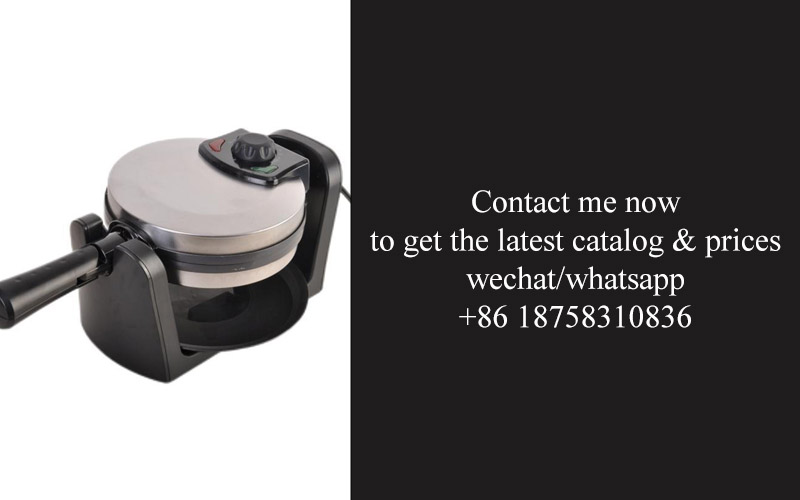
UKCA certification stands as a pivotal milestone for manufacturers looking to tap into the vast and lucrative European market. This certification, which stands for United Kingdom Conformity Assessment, is a testament to the safety and compliance of products with the UK’s standards. But what does it mean for companies aiming to export kitchen appliances to the EU? Let’s delve into the intricacies of UKCA certification and its significance as a gateway to the European Union.
The UKCA mark is a direct successor to the CE mark, which was previously used for conformity assessment in the EU. With the UK’s departure from the European Union, a new certification was introduced to ensure that products meeting UK standards could still access the single market. For kitchen appliance manufacturers, this means adapting to a new set of regulations that are designed to maintain the same level of safety and quality.
One of the key aspects of UKCA certification is the emphasis on product safety. The certification process involves rigorous testing and assessment to ensure that kitchen appliances comply with a wide range of standards, from electrical safety to energy efficiency. This not only protects consumers but also gives peace of mind to retailers and distributors who are confident in the quality of the products they are selling.
Understanding the technical requirements for UKCA certification can be daunting. It encompasses a variety of directives and regulations, including the Low Voltage Directive, the Electromagnetic Compatibility Directive, and the General Product Safety Directive. Each directive has specific requirements that must be met, and failure to comply can result in products being deemed unsafe and unable to be sold in the EU.
For kitchen appliances, the Low Voltage Directive is particularly relevant. It sets out the essential safety requirements for electrical equipment and systems operating at voltages up to 1000V AC or 1500V DC. This means that every component, from the motor to the wiring, must be tested and proven to be safe under various conditions. Compliance with this directive is not just about meeting the minimum standards; it’s about ensuring that the appliance is reliable and safe for its intended use.
The Electromagnetic Compatibility Directive addresses the issue of electromagnetic interference that can disrupt the proper functioning of electrical equipment. Kitchen appliances, with their array of electronic components, must be designed and built to minimize such interference. This involves not only the components themselves but also the way they are integrated into the appliance’s design.
Another critical aspect of UKCA certification is the declaration of conformity. This is a formal statement by the manufacturer or their authorized representative that the product meets all the necessary requirements. The declaration must be accompanied by technical documentation, including the test reports and the technical construction files. This process ensures transparency and accountability, as every aspect of the product’s compliance is documented and available for inspection.
For manufacturers looking to enter the EU market, the UKCA certification is not just a regulatory requirement; it’s a tool for differentiation. Consumers in the EU have come to expect a certain level of quality and safety from products, and the UKCA mark can serve as a mark of distinction. It signals to customers that the product has undergone thorough scrutiny and meets the stringent standards set by the UK.
However, the process of obtaining UKCA certification is not without its challenges. It requires a deep understanding of the regulations, access to the necessary testing facilities, and often, additional resources to ensure compliance. This is where the concept of a turnkey solution becomes invaluable.
A turnkey service for UKCA certification provides manufacturers with a comprehensive package that covers all aspects of the certification process. From identifying the relevant standards and directives to conducting the necessary tests and preparing the technical documentation, a turnkey service can take the complexity out of compliance. This is particularly beneficial for smaller companies that may not have the resources or expertise to navigate the certification process independently.
Moreover, a turnkey solution can also offer ongoing support. As regulations evolve and new directives are introduced, manufacturers need to stay informed and adapt. A turnkey provider can offer updates and guidance, ensuring that products remain compliant with the latest requirements.
In conclusion, UKCA certification is more than just a regulatory hurdle; it’s an opportunity for kitchen appliance manufacturers to demonstrate their commitment to quality and safety. By understanding the intricacies of the certification process and leveraging turnkey services, companies can successfully navigate the gateway to the EU market, opening doors to new customers and growth opportunities.

In the realm of consumer electronics, kitchen appliances stand out as a vital segment, not just for their practicality but also for their potential to drive innovation and market growth. Let’s delve into why this niche is so crucial and what makes its growth potential so enticing.
The heart of the home, the kitchen, has evolved from a mere cooking space to a hub of culinary creativity and social interaction. This shift has propelled the demand for advanced kitchen appliances that not only simplify tasks but also enhance the overall cooking experience. From smart ovens that can bake a perfect cake at the touch of a button to refrigerators that optimize food storage, the market for kitchen appliances is expanding rapidly.
Modern consumers are not just looking for convenience; they’re seeking smart, energy-efficient, and eco-friendly solutions. This demand has given rise to a plethora of innovative products, each promising to make life easier and more sustainable. The niche of kitchen appliances, therefore, is not just a sector but a platform for technological advancements that resonate with the broader trends in consumer electronics.
The growth potential of the kitchen appliances market is further fueled by several factors. For one, the global population is increasing, and with it, the need for efficient cooking solutions. Urbanization has led to smaller living spaces, making compact and multifunctional appliances more appealing. Additionally, the rise of health consciousness has sparked a demand for appliances that can help prepare nutritious meals quickly and easily.
Another driving force is the integration of technology. Smart kitchen appliances are becoming increasingly popular, with features like voice control, remote monitoring, and even AI-driven meal planning. These innovations not only cater to the tech-savvy consumer but also to those who are looking for ways to streamline their daily routines.
The market is also seeing a surge in cross-border interest. As consumers become more aware of global trends, they are eager to adopt the latest appliances from around the world. This has opened up opportunities for manufacturers to tap into new markets, expanding their reach and revenue streams.
Moreover, the kitchen appliances market is ripe for customization. Consumers are no longer satisfied with one-size-fits-all solutions; they want appliances that can be tailored to their specific needs and preferences. This has led to a rise in personalized and modular kitchen appliances, which offer users the flexibility to build their ideal kitchen ecosystem.
The niche’s growth potential is not without its challenges, however. Competition is fierce, with established brands vying for market share alongside a growing number of startups and niche players. Moreover, regulatory compliance can be a hurdle, especially for companies looking to expand into new markets like the European Union.
In the EU, the introduction of the UKCA (United Kingdom Conformity Assessment) mark is a significant development for kitchen appliance manufacturers. This certification is a direct response to the UK’s departure from the European Union and serves as a replacement for the CE mark. Understanding the implications of UKCA certification is crucial for companies aiming to enter or maintain a presence in the EU market.
The UKCA mark ensures that products meet the necessary safety, health, and environmental protection requirements of the EU. For kitchen appliances, this means adhering to stringent standards in areas such as electrical safety, energy efficiency, and materials used. By obtaining UKCA certification, manufacturers can demonstrate their commitment to quality and compliance, which is essential for building trust with European consumers.
The process of obtaining UKCA certification can be complex, involving various stages of testing, documentation, and assessment. However, for those who navigate it successfully, the rewards are substantial. Access to the EU market, with its high purchasing power and growing demand for kitchen appliances, can be a game-changer for businesses.
Furthermore, the UKCA mark is not just a regulatory requirement; it’s an opportunity for manufacturers to differentiate their products. Consumers in the EU are increasingly seeking out appliances that are not only high-quality but also meet the strictest safety and environmental standards. By embracing UKCA certification, companies can position themselves as leaders in the market, appealing to a discerning consumer base.
In conclusion, the niche of kitchen appliances is a dynamic and rapidly growing sector, driven by technological innovation, consumer demand, and global market trends. The path to success in this niche is paved with challenges, but the rewards are substantial. For manufacturers looking to expand into the EU, understanding and obtaining UKCA certification is a critical step towards unlocking the market’s full potential.

In the ever-evolving landscape of kitchen appliances, innovation isn’t just a buzzword; it’s a driving force behind the industry’s relentless push forward. From smart technology integration to sustainable materials, the future of kitchen appliances is as exciting as it is transformative. Let’s delve into some of the groundbreaking ideas shaping this niche.
The rise of smart kitchens has brought a new wave of connectivity to the forefront. Appliances that can communicate with each other and with homeowners through voice assistants or smartphone apps are not just convenient—they’re becoming essential. Imagine a refrigerator that can order groceries when it detects you’re running low on essentials, or an oven that can adjust its settings based on the recipe you’re following. These smart features are not just about convenience; they’re about creating a seamless, integrated cooking experience.
Sustainability is another key driver of innovation in kitchen appliances. As consumers become more environmentally conscious, manufacturers are responding with appliances that are not only energy-efficient but also made from recycled or renewable materials. For instance, induction cooktops are gaining popularity for their efficiency, reducing energy loss compared to traditional electric or gas burners. Additionally, appliances made from recycled stainless steel or bamboo are not only eco-friendly but also offer a unique aesthetic appeal.
The integration of health and wellness into kitchen appliances is also a significant trend. We’re seeing appliances that can help us maintain a healthier lifestyle, from sous-vide cookers that ensure food is cooked to perfection without overcooking to air fryers that provide a healthier alternative to deep-frying. These appliances not only enhance the quality of the food we eat but also educate users on better cooking practices.
One of the most fascinating areas of innovation is in the realm of personalization. Appliances that can adapt to individual preferences and cooking styles are becoming more common. For example, smart ovens that can learn your preferred cooking times and temperatures or coffee makers that can remember your favorite blend and strength settings. This level of personalization is not just about convenience; it’s about creating a kitchen experience that feels uniquely tailored to each user.
In terms of design, kitchen appliances are moving away from the utilitarian look of the past. Modern appliances are sleeker, more stylish, and often blend seamlessly into the kitchen’s aesthetic. We’re seeing a surge in appliances that offer a variety of color options and finishes, allowing homeowners to express their personal style through their kitchenware.
Energy efficiency remains a cornerstone of innovation, with manufacturers pushing the boundaries of what’s possible. Appliances that can be controlled remotely to optimize energy use during off-peak hours or that automatically adjust to the number of people in the home are examples of this trend. These smart energy-saving features not only reduce utility bills but also contribute to a smaller carbon footprint.
The future of kitchen appliances also includes a focus on ease of use and maintenance. Touchless technology, for instance, is becoming more prevalent, allowing for hands-free operation of appliances like faucets and ovens. This not only adds a layer of cleanliness but also makes kitchen tasks more hygienic, especially in today’s health-conscious world.
Another exciting development is the integration of augmented reality (AR) and virtual reality (VR) into kitchen appliances. Imagine using AR to visualize how a new kitchen layout would look before making a purchase or using VR to simulate cooking experiences without the need for a physical appliance. These technologies have the potential to revolutionize the way we interact with our kitchen tools.
Lastly, the rise of modular and customizable kitchen appliances is a testament to the industry’s commitment to innovation. Consumers can now choose specific features and functionalities, creating a kitchen appliance that perfectly suits their needs and preferences. This modular approach allows for a more flexible and adaptable kitchen environment.
In conclusion, the future of kitchen appliances is a blend of smart technology, sustainability, personalization, and aesthetic appeal. As the industry continues to evolve, we can expect to see even more innovative ideas that not only enhance our daily lives but also contribute to a more sustainable and efficient world.

Navigating the complexities of certification can be a daunting task for manufacturers, especially when entering new markets. The turnkey approach offers a streamlined solution that simplifies the process and ensures compliance with regulatory standards. Here’s how this method can transform the certification journey for kitchen appliance brands.
Efficiency is the cornerstone of the turnkey approach. By consolidating all aspects of certification into a single package, manufacturers can avoid the fragmented and time-consuming process of dealing with multiple entities. This holistic approach means that from the initial assessment to the final certification, all steps are handled under one roof, reducing the administrative burden significantly.
Expertise is another key advantage. Turnkey providers typically have a team of seasoned professionals who specialize in regulatory compliance. These experts are well-versed in the nuances of various certification standards, including the UKCA (United Kingdom Conformity Assessment) mark, which is crucial for entering the EU market. Their knowledge and experience ensure that every aspect of the certification process is handled with precision.
Customization is a hallmark of the turnkey approach. Each kitchen appliance manufacturer has unique needs, and a turnkey provider can tailor the certification process to fit those specific requirements. Whether it’s a specialized product or a particular market segment, the flexibility offered by turnkey services ensures that the certification process is as efficient as possible without compromising on quality.
Savings in time and resources are substantial with a turnkey approach. The streamlined process minimizes the time spent on certification, allowing manufacturers to focus on their core business activities. Moreover, by eliminating the need for multiple suppliers and consultants, costs are significantly reduced. This efficiency in resource allocation is particularly beneficial for small and medium-sized enterprises (SMEs) that may not have the budget to navigate the certification maze independently.
Compliance is guaranteed with the turnkey approach. The comprehensive nature of these services ensures that all necessary regulations and standards are met. This includes not only the technical requirements but also the documentation and labeling needs. By entrusting the certification process to a turnkey provider, manufacturers can be confident that their products will meet the strict EU market standards.
Risk mitigation is a critical aspect of the turnkey approach. The uncertainty associated with certification can be a significant barrier for manufacturers. Turnkey services mitigate this risk by providing a clear path to compliance, reducing the likelihood of delays or rejections. This peace of mind allows businesses to plan and strategize with greater certainty.
The turnkey approach also fosters collaboration. By working with a single provider, manufacturers can build a strong relationship that can extend beyond certification. This collaboration can lead to ongoing support, including updates on regulatory changes, product development advice, and market insights. This symbiotic relationship can be invaluable for long-term success.
Innovation is encouraged through the turnkey approach. As manufacturers focus on their products and market strategies, turnkey providers can offer insights into the latest technological advancements and compliance trends. This can lead to the development of innovative kitchen appliances that are not only compliant but also ahead of the curve in terms of technology and sustainability.
Transparency is a hallmark of turnkey services. Manufacturers are kept informed at every stage of the certification process, from initial assessments to final approvals. This transparency builds trust and allows for timely feedback, ensuring that any issues are addressed promptly.
In conclusion, the turnkey approach to certification is a game-changer for kitchen appliance manufacturers looking to enter the EU market. By offering efficiency, expertise, customization, cost savings, compliance, risk mitigation, collaboration, innovation, and transparency, turnkey services provide a comprehensive solution that simplifies the certification process and paves the way for successful market entry.

Navigating the complexities of international markets can be daunting, especially for manufacturers looking to expand their reach into the European Union. The UKCA (United Kingdom Conformity Assessment) certification stands as a pivotal step for kitchen appliance brands aiming to tap into the EU’s vast consumer base. Here’s a closer look at the advantages this certification brings to manufacturers.
Enhanced Market AccessWith the UK’s departure from the EU, the UKCA certification has become a necessity for appliances to comply with EU regulations. This certification opens doors to a market of over 500 million consumers, offering manufacturers a significant opportunity to grow their business.
Reduced Compliance Costs Over TimeWhile the initial investment in obtaining UKCA certification might seem substantial, it often leads to long-term cost savings. By adhering to the stringent EU standards from the start, manufacturers can avoid the expenses associated with rework or recall due to non-compliance in the future.
Increased Product Reliability and SafetyThe rigorous testing and certification process ensures that kitchen appliances meet high safety and performance standards. This not only protects consumers but also builds trust in the brand, leading to higher customer satisfaction and loyalty.
Standardized Technical SpecificationsUKCA certification requires kitchen appliances to adhere to specific technical specifications. This standardization means that manufacturers can produce products that are compatible across the EU, simplifying supply chain management and reducing the need for multiple product variations.
Improved Export EfficiencyStreamlined export processes are a direct benefit of UKCA certification. By having this certification in place, manufacturers can expedite customs procedures, reduce the risk of delays, and maintain a competitive edge in the international market.
Consumer Trust and CredibilityA UKCA mark on a kitchen appliance serves as a seal of approval, assuring consumers of the product’s compliance with EU regulations. This can boost sales, especially in regions where safety and quality are paramount purchasing considerations.
Increased Export Volume and DiversificationFor manufacturers already operating in the EU market, UKCA certification allows for the expansion of their product range and volume. This can lead to increased export volumes and the potential to diversify their product offerings, catering to different market segments.
Competitive Advantage in Bidding for Government ContractsIn many EU countries, compliance with local regulations is a prerequisite for bidding on government contracts. With UKCA certification, manufacturers can take advantage of these opportunities, potentially securing substantial contracts and revenue streams.
Long-term Strategic PlanningObtaining UKCA certification requires forward-thinking and strategic planning. By proactively pursuing this certification, manufacturers position themselves for long-term growth and stability, even as regulations evolve.
SimplifiedHaving a standardized set of regulations for kitchen appliances in the EU means that manufacturers can provide a more consistent and streamlined service across different countries. This can lead to easier warranty management and customer support.
Enhanced InnovationWith a clear regulatory framework in place, manufacturers are more likely to invest in innovation, knowing that their products will comply with the latest EU standards. This can drive the development of new and improved kitchen appliances that appeal to consumers.
Networking and Collaboration OpportunitiesThe certification process often involves collaboration with regulatory bodies, certification authorities, and industry experts. This networking can lead to valuable insights and partnerships, further enhancing the manufacturer’s position in the market.
In conclusion, while the process of obtaining UKCA certification for kitchen appliances may seem intricate, the benefits it brings to manufacturers are numerous. From expanded market access and cost savings to increased product reliability and strategic advantages, the investment in UKCA certification can pay off handsomely for those willing to embrace the changes and opportunities it presents.
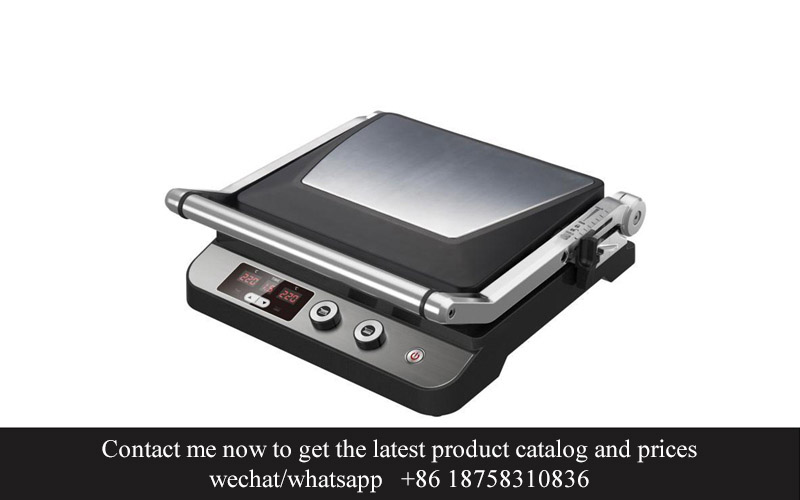
In the bustling landscape of the European Union market, several brands have managed to carve out a niche for themselves, thanks to their strategic approach and understanding of the certification process. Here are some success stories that showcase how brands have navigated the EU market:
Brand A: Specializing in energy-efficient kitchen appliances, Brand A faced the challenge of meeting the stringent regulations of the EU market. By investing in comprehensive research and development, they developed a product line that not only adhered to the UKCA (United Kingdom Conformity Assessment) standards but also exceeded consumer expectations in terms of functionality and sustainability. This dedication to innovation and compliance paid off, as the brand quickly gained a loyal customer base across Europe.
Brand B: A relative newcomer to the European market, Brand B struggled to establish its identity. Recognizing the importance of certifications in building trust, they decided to take a turnkey approach to UKCA certification. By partnering with a reputable certification body, they streamlined the process and were able to bring their products to market swiftly. This strategic move not only helped them establish credibility but also positioned them as a reliable provider in the competitive EU market.
Brand C: Focused on eco-friendly appliances, Brand C understood the importance of not just meeting but exceeding environmental standards. They embarked on a journey to secure UKCA certification for their products, which involved rigorous testing and adherence to EU directives. The effort was worth it; the brand’s commitment to sustainability resonated with eco-conscious consumers, leading to a surge in sales and brand recognition across the EU.
Brand D: With a strong presence in other international markets, Brand D ventured into the EU market with a range of premium kitchen appliances. They faced the challenge of navigating the complex certification landscape. By opting for a turnkey solution, they were able to manage the certification process more efficiently, ensuring their products were ready for market launch without delays. This approach not only saved time but also allowed them to maintain their premium brand image.
Brand E: A small, family-owned business, Brand E entered the EU market with a unique product that promised to revolutionize kitchen cooking. The brand knew that to succeed, they had to comply with UKCA regulations. They sought help from a local certification body that offered a turnkey service, which included not just the certification but also guidance on local regulations and market entry strategies. This holistic approach helped Brand E gain a foothold in the EU market, attracting attention from both retailers and consumers.
Brand F: Recognizing the power of technology in kitchen appliances, Brand F introduced smart devices that integrated with home automation systems. The challenge was to ensure these cutting-edge products met the UKCA standards. By engaging with a certification partner that had expertise in technology and smart appliances, Brand F secured the necessary certifications and was able to position their products as leaders in the smart kitchen category.
These case studies highlight the diversity of approaches that brands have taken to succeed in the EU market. From focusing on sustainability to leveraging technology, each brand has navigated the certification process to achieve their goals. The common thread among them is the understanding that UKCA certification is not just a regulatory requirement but a tool for entering a competitive and demanding market with confidence.
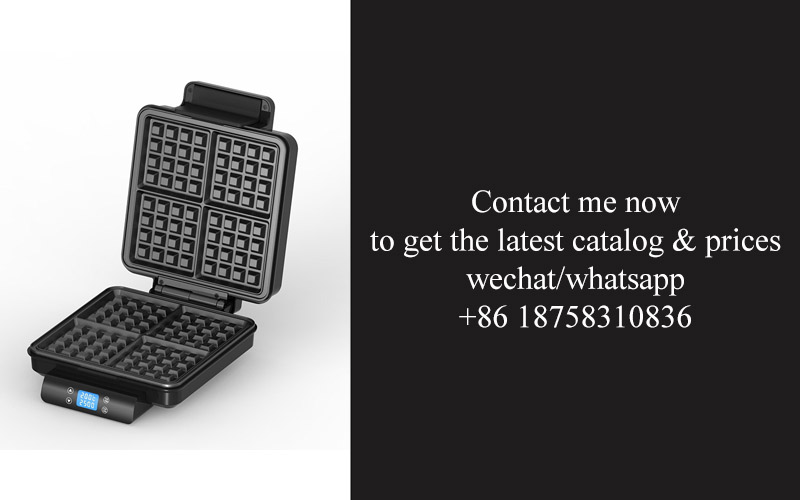
Understanding the complexities of entering a new market is crucial, especially for manufacturers looking to expand their reach into the EU. The European Union market, with its diverse cultures and high consumer standards, presents both opportunities and challenges. To make this transition smoother, brands must be well-informed and strategically prepared. Here are some key tips for navigating the EU landscape effectively:
Research the Market: Dive deep into market research to understand consumer preferences, local regulations, and competition. Tailoring your products to meet the specific needs and tastes of EU consumers is essential for success.
Stay Informed About Regulations: Keep abreast of the latest EU regulations, which can be complex and vary from one country to another. This includes product safety standards, environmental regulations, and import/export rules.
Build Strong Local Partnerships: Collaborate with local distributors, suppliers, and consultants who have a thorough understanding of the market. Their local expertise can be invaluable in navigating the intricacies of the EU market.
Optimize Logistics and Supply Chain: Efficient logistics and a reliable supply chain are critical. Ensure that your products can be delivered quickly and cost-effectively to various EU destinations.
Cultivate a Strong Online Presence: In the digital age, an online presence is just as important as a physical one. Establish a strong web presence that caters to EU customers, including multilingual support and a user-friendly interface.
Understand Cultural Nuances: Different cultures have different expectations and preferences. Adapting your marketing strategies, product designs, and customer service to align with these nuances can make a significant difference.
Invest in Quality Control: Consistency in quality is key in the EU market. Regularly test your products to ensure they meet the stringent quality standards expected by EU consumers.
Leverage Social Media: Social media platforms can be powerful tools for market penetration. Use them to engage with potential customers, build brand awareness, and gather feedback.
Be Adaptable: The EU market is dynamic, and trends can change rapidly. Stay adaptable and ready to pivot your strategies if needed.
Attend Trade Shows and Industry Events: Participating in trade shows and industry events is a great way to network, learn about new trends, and showcase your products to a wider audience.
Understand Tax and Duty Implications: Be aware of the tax and duty implications of exporting to the EU. This can significantly impact your pricing and profitability.
Protect Intellectual Property: Ensure that your intellectual property is protected in the EU. This includes patents, trademarks, and copyrights, which are vital for maintaining a competitive edge.
Plan for After-Sales Service: A robust after-sales service is essential for customer satisfaction and repeat business. Have a plan in place to handle warranty claims, repairs, and customer inquiries.
Monitor Competitors: Keep an eye on your competitors to understand their strategies and identify potential gaps in the market that you can exploit.
Embrace Sustainability: Sustainability is a growing concern for consumers in the EU. Consider how your products can be environmentally friendly and promote sustainability.
By following these tips, manufacturers can navigate the EU market landscape more effectively, ensuring a seamless transition and setting the stage for long-term success.
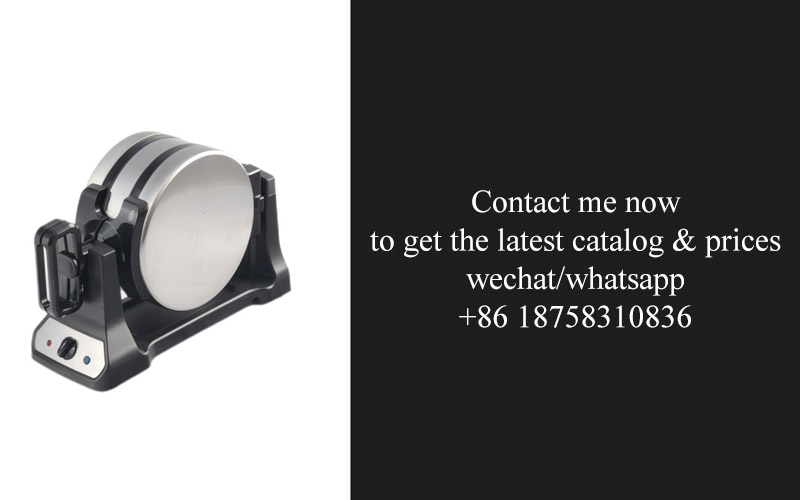
The UKCA certification marks a significant milestone for manufacturers looking to expand their reach into the European Union. As the landscape evolves, it’s crucial to understand the intricacies of this certification and how it can pave the way for a more robust presence in the EU market. Here are some insights into the process and its benefits:
Embracing the UKCA certification is not just about meeting regulatory requirements; it’s about positioning your brand as a player committed to safety and quality. The certification process, while thorough, offers several advantages that can enhance your brand’s reputation and marketability.
For one, UKCA certification demonstrates your product’s compliance with the latest EU standards, which is a major selling point for consumers who value safety and reliability. It also serves as a testament to your brand’s dedication to innovation, as it often involves incorporating the latest technological advancements.
Moreover, having UKCA certification can open doors to new business opportunities. Distributors and retailers often prefer to work with brands that have already gone through the certification process, as it reduces their own risk and streamlines the supply chain. This can lead to more partnerships and a broader distribution network.
In the competitive EU market, where consumer trust is paramount, UKCA certification can differentiate your brand from competitors. It’s not just about compliance; it’s about building a narrative around your brand that resonates with European consumers.
Several brands have successfully navigated the EU market by embracing UKCA certification. Let’s take a look at a few success stories:
Transitioning to UKCA certification can be a complex process, but with the right approach, it can be a seamless experience. Here are some tips to help you navigate the landscape effectively:
Understand the Requirements: Familiarize yourself with the specific regulations and standards that apply to your product category. This knowledge will help you identify the necessary certifications and testing procedures.
Seek Professional Assistance: Don’t hesitate to consult with experts who specialize in UKCA certification. They can guide you through the process, ensuring that you meet all the necessary criteria.
Plan Ahead: The certification process can take time, so start early. This will give you ample opportunity to address any issues that may arise and avoid last-minute delays.
Document Everything: Keep detailed records of all the steps you take during the certification process. This documentation will be invaluable if you need to provide evidence of compliance in the future.
Stay Informed: Regulations and standards can change, so it’s important to stay up-to-date with the latest developments. This will help you adapt quickly to any new requirements.
Invest in Quality: The UKCA certification process is designed to ensure that products meet high standards of quality and safety. Investing in quality not only helps you pass the certification but also enhances your brand’s reputation.
Communicate with Stakeholders: Keep your suppliers, distributors, and retailers informed about your certification progress. This open communication can help smooth out any potential issues and ensure a coordinated approach to market entry.
In conclusion, UKCA certification is more than just a regulatory requirement; it’s an opportunity to strengthen your brand’s position in the EU market. By understanding the process, leveraging its benefits, and navigating the landscape with care, manufacturers can embrace UKCA certification as a stepping stone to a brighter, more prosperous future in the European Union.